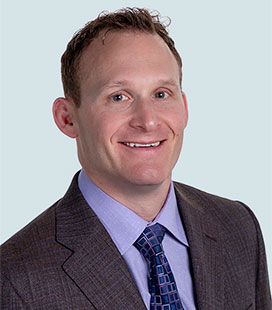
Peter Kaye, MD, is a colorectal surgeon at Englewood Health and part of the Englewood Health Physician Network.
When it comes to colon and rectal health, a feeling of awkwardness can sometimes get in the way of dis-cussing problems with your doctor. It’s for this reason that a physician who specializes in these fields must have a special knack for putting patients at ease. Peter M. Kaye, MD, is a colon and rectal surgery specialist, and recently joined the Englewood Health Physician Network. At Englewood, Dr. Kaye treats a wide range of conditions—everything from hemorrhoids and fissures, to diverticulitis (inflammation or infection in the digestive tract), inflammatory bowel disease, such as Crohn’s disease and ulcerative colitis, to colon and rectal cancer.
What can people do to prevent diverticulitis, hemorrhoids, or fissures from developing?
Dr. Kaye: Many of the colon and rectal conditions I treat are highly preventable through healthy, clean living. Simple adjustments like drinking more water; eating fruits, vegetables, and fiber; avoiding empty carbohydrates; and exercising regularly are a huge help. There is evidence that a healthier lifestyle might also play a role in the prevention of colorectal cancer.
Do patients hesitate to see you because they don’t want to talk about their bowel movements?
Dr. Kaye: Absolutely! One common condition I treat is fecal incontinence (an inability to control one’s bowel) and I would say that people with this condition don’t seek medical attention for that reason alone. However, it is important for people to know that there are ways to help with this condition.
Is family history a major risk factor for colorectal cancer?
Dr. Kaye: A majority of patients diagnosed with colorectal cancer have no family history of the disease. The biggest risk factor for colorectal cancer is age. Several months ago, the recommended age to begin colon screening dropped from 50 to 45 because we’re starting to see more cases of colon cancer in younger people.
After age 45, how often should I get a colonoscopy?
Dr. Kaye: That depends on what we find in your first colonoscopy. If we find polyps (small growths that can lead to cancer), we recommend an earlier date for your next colonoscopy. But if the results are normal, you may be able to wait as long as 10 years before your next one.
Posted July 2019

Peter Kaye, MD, is a colorectal surgeon at Englewood Health and part of the Englewood Health Physician Network.
